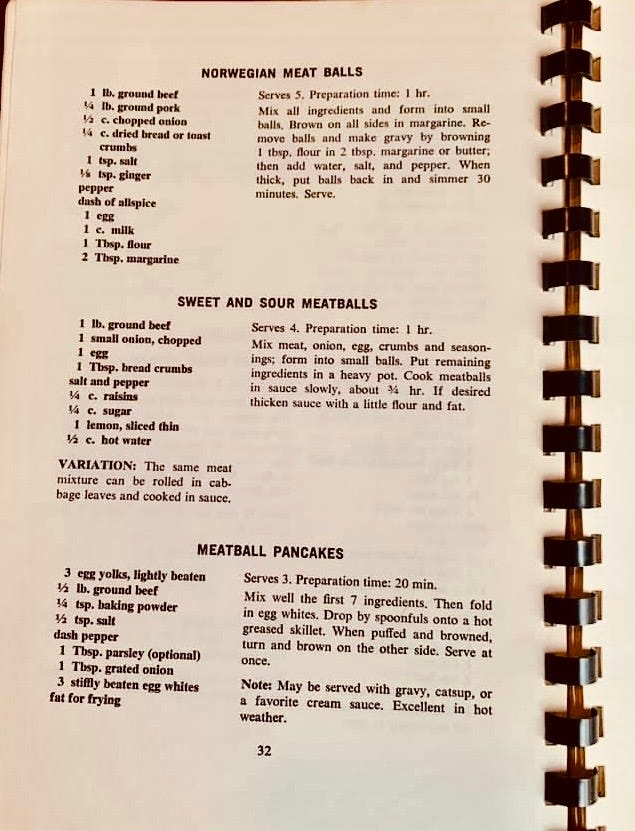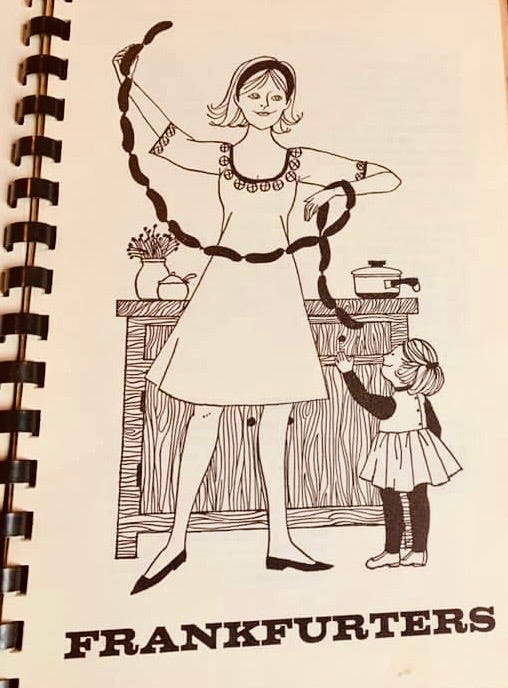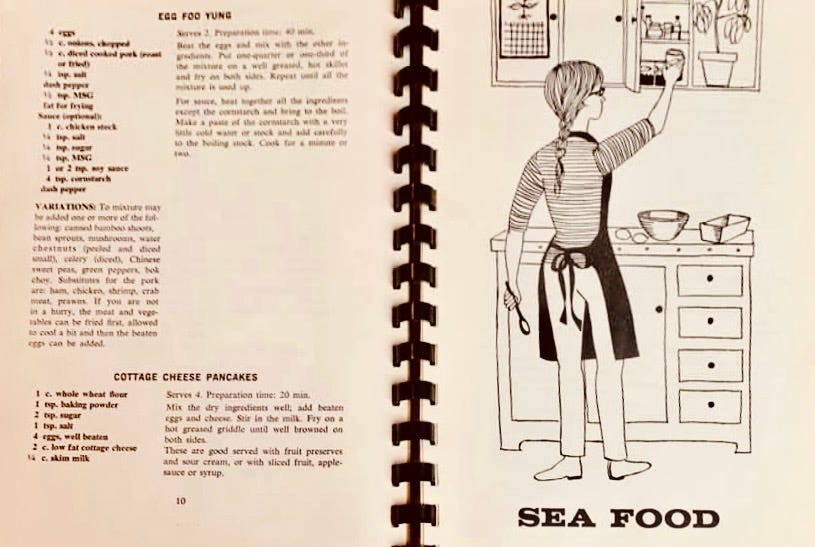The Berkeley Co-op Cookbook Sandbox
How I Learned to Read- and Cook- from the Proto-Feminist Beatniks of the 60s
One rainy Mendocino January, I house-sat with Jon and Becky in a rural cabin off the grid. There were few ingredients in the pantry for our meals; no store nearby. I had a little bit of ground chuck in my cooler..
Out of my Pre-School memories, from when I was a toddler in 1960s Berkeley, I came up with an idea that matched the cabin’s spice cabinet.
“I’m going to make ‘Norwegian Meatballs,” I announced, like the Blue Ribbon Winner at the Minnesota State Fair.
No one knew what I was talking about.

“These meatballs are from the Berkeley Co-op cookbook that every UNICEF-loving, sandals-and-turtleneck-wearing mom had in the early sixties,” I explained.
“I’d give anything for a copy of this cookbook. Those Norwegian meatballs were the fanciest meal we ever had; I adore them.”

Becky asked if I’d looked online for the book, and PRESTO— we found it.
I now have a first-edition copy, barely used, of the most perfect cookbook in the world.
In 1963, I loved going to the Shattuck Avenue Berkeley Co-op for the same reason as every little kid— when you walked in, your mom would drop you off at the childcare room, where there was an enormous wooden play-box of wet sand.
Plop, I jumped right in. The time flew by. I had no idea where Mommy was, and I didn’t care. I would cry when I was wrenched out of the sand.
Jeez, free childcare at stores and public facilities for overwhelmed moms? There’s an idea, right?

The Co-op is the first and last time I ever saw grocery store childcare, as a child, or as an adult.
This cookbook . . . well, when you peruse my photo gallery, you’ll grasp the significance. —Incredible how the editors spoke to working and middle class women about how to cook wholesome, cheap food without fanfare or condescension.
It was written by post-WWII home economists, proto-feminists who were considered wild for suggesting families eat whole apples instead of apple juice. —Or for thinking that you might be low on cash, but didn’t have to poison yourself with low-quality food.
This was radical stuff!
This was before the organic or local-food movement existed outside of a fringe. There was no such thing as a “foodie.” There was only the Co-op movement.

Remember how I mentioned UNICEF earlier? In Berkeley, with its university town penchant for international exchange, the idea that one could learn and rejoice from other people’s languages, culture, cuisine— was innovative.
I remember begging for the Egg FooYung special.
There’s also something remarkable about realizing I could read— before I *knew* I could read. The code was cracked. There is one page from the Cookbook, with a pen and ink illustration of a cute mom and daughter and the headline: “Eggs and Cheese.”
Bam! I remember reading those two words and being intoxicated that I understood “words+picture.” I was hungry! I loved Eggs and Cheese! And when you’re first learning how to recognize written language, it’s as if you’re tasting each discovery.

I’d love to hear from you if you share 1960s co-op memories. (Please don’t bother telling me about how it all went to hell later on. We know.).
I want to revel in these memories of early Berkeley-ness, incipient mom-feminism, and hilarious American adaptations of “International Flavors!”
And, if you were there in sandbox with me, I need to know.


My BFF Kimi, who I got to know in LA high schools in 70s, just wrote me that SHE was in the same sandbox in the early sixties, too. What if we were both putting sand in our hair at the same time? Destiny.
I am intrigued by the meatball pancakes!